How to use coffee grounds in gardening – the hacks that work and the ones that don't
Using coffee grounds in gardening helps soil and plant health. Learn about effective ways to turn your coffee waste into garden treasure – and be aware of the common coffee grounds myths

Anna K. Cottrell
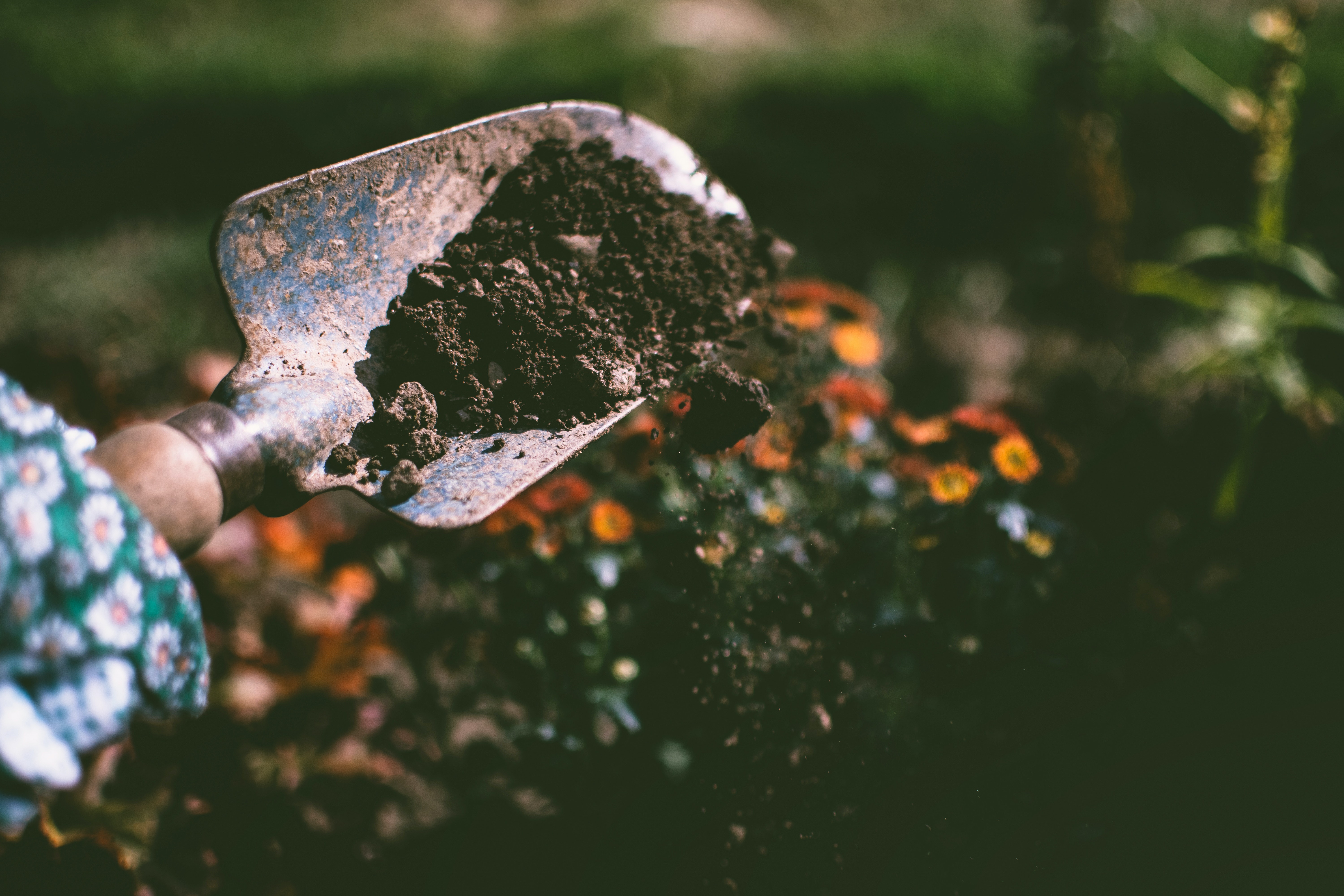
You've probably heard all about using coffee grounds in gardening. But does using coffee actually work, and if so, how do you use coffee grounds correctly, for maximum benefit to your soil and plants?
You've put your best coffee maker to good use – now, find out how to make the most of your coffee waste while gardening. When figuring out how to use coffee grounds in the garden, make sure you concentrate your efforts on the garden hacks that are really useful – and avoid those that have been proved to be myths.
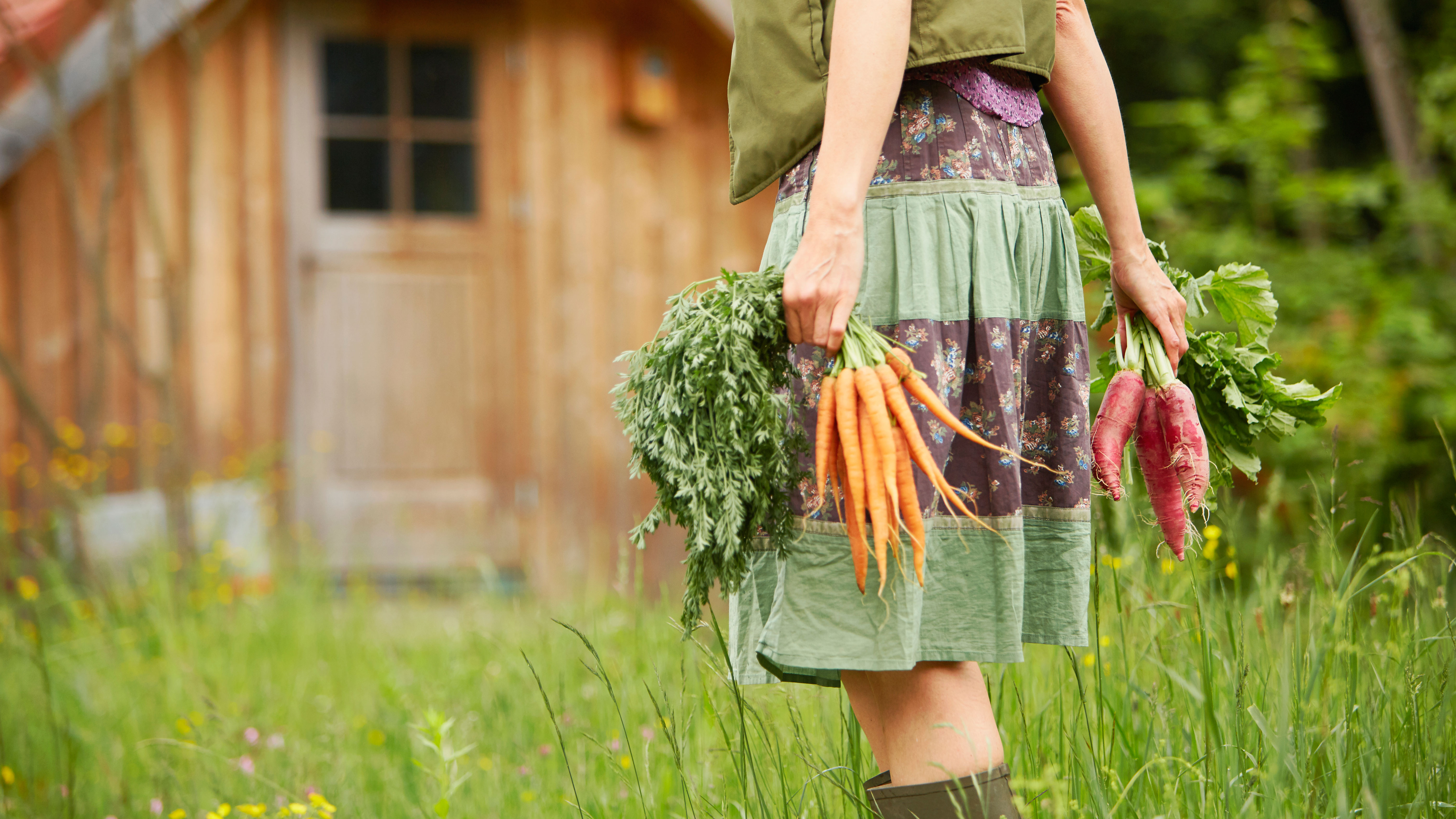
1. Make your own fertilizer for plants
You can create your own fertilizer from coffee grounds, saving the expense of buying a commercial version. Fertilizers are used to provide a source of nutrients for plants and improve their growth and, even if your soil is healthy, they could result in a better display from flowering plants and a bigger harvest in kitchen gardens.
Coffee grounds contain many of the nutrients commonly found in plant fertilizer. According to coffee expert Lewis Spencer of Coffee-Direct.co.uk, 'coffee grounds have a varied amount of essential nutrients in each batch, but they all contain nitrogen, potassium and phosphorus alongside micronutrients.'
There won't be a huge amount of these nutrients in the coffee grounds – far less than the concentrations found in commercially produced fertilizer – but this can be a good thing, as a slow release of nutrients is actually better for a healthy garden than a massive dose all at once.
According to Spencer, 'plants such as carrots, azaleas and roses would appreciate a nice boost from coffee grounds.'
There are some plants, however, coffee grounds are not suitable. This isn't because coffee grounds acidify soil (this is a myth), but because applying coffee grounds straight to the soil can inhibit seedlings from growing. This seems to be especially true of tomato seedlings, so avoid using coffee grounds if you're growing tomatoes.
Get small space home decor ideas, celeb inspiration, DIY tips and more, straight to your inbox!
You can make your own liquid plant fertilizer by filling a bucket with 5 gallons of water and mix in two cups of brewed coffee grounds. Leave overnight before using.
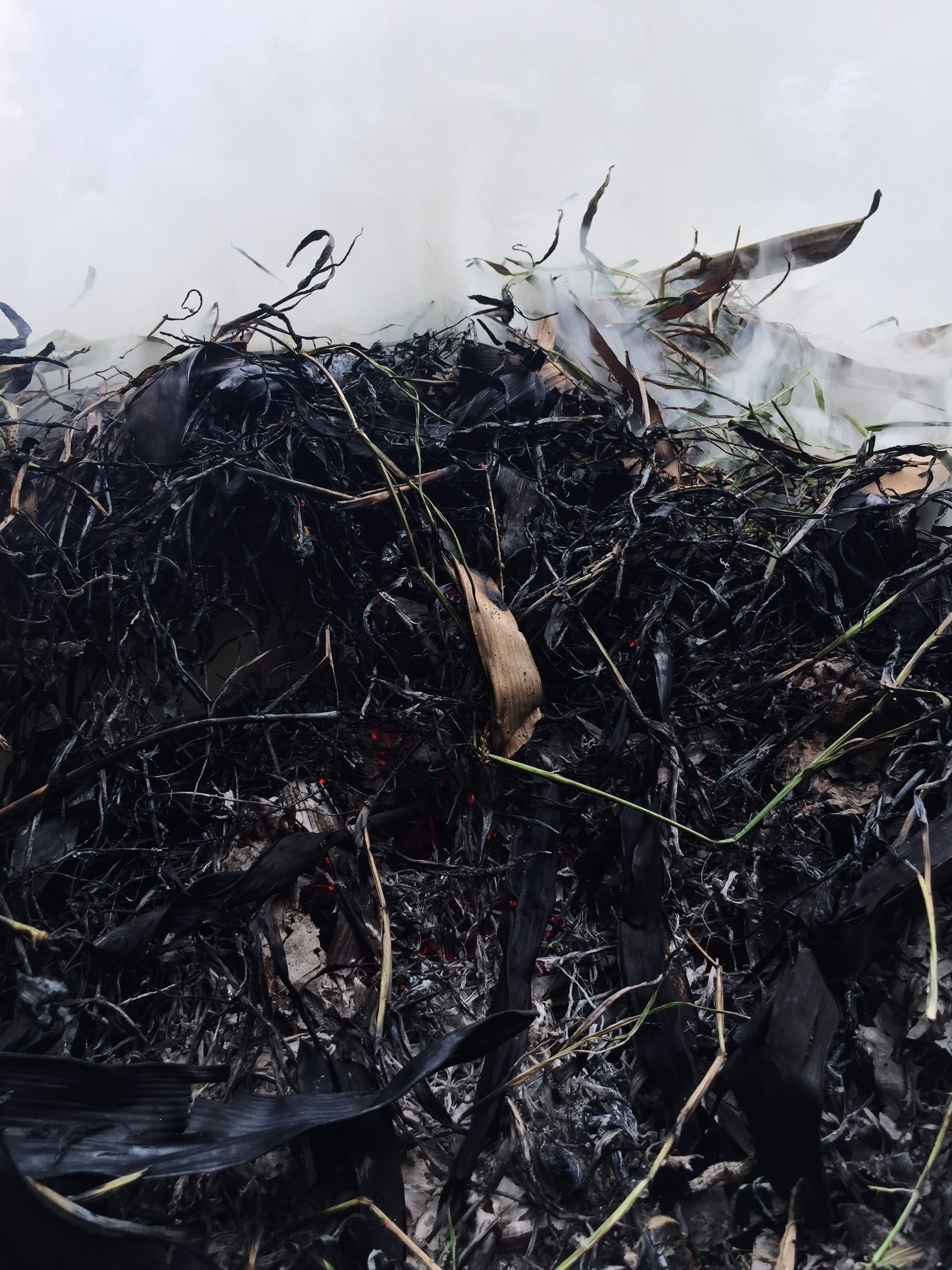
2. Use coffee grounds in compost
Coffee grounds are excellent for use in compost; in fact, composting yours is far better for your garden than putting them directly on your veggie beds. One of the main benefits of compost in your garden is opening up the soil structure, which aids aeration and microbial exchange.
If you know how to make compost then you'll know that it's made using both brown ingredients – that’s things like dried leaves, twigs, and newspaper – and green materials, including grass clippings and dead flowers.
Coffee grounds can contribute to its green ingredients. Add the filter paper, too – only if it's unbleached – which can be part of the mix and means you’ll be generating even less household waste.
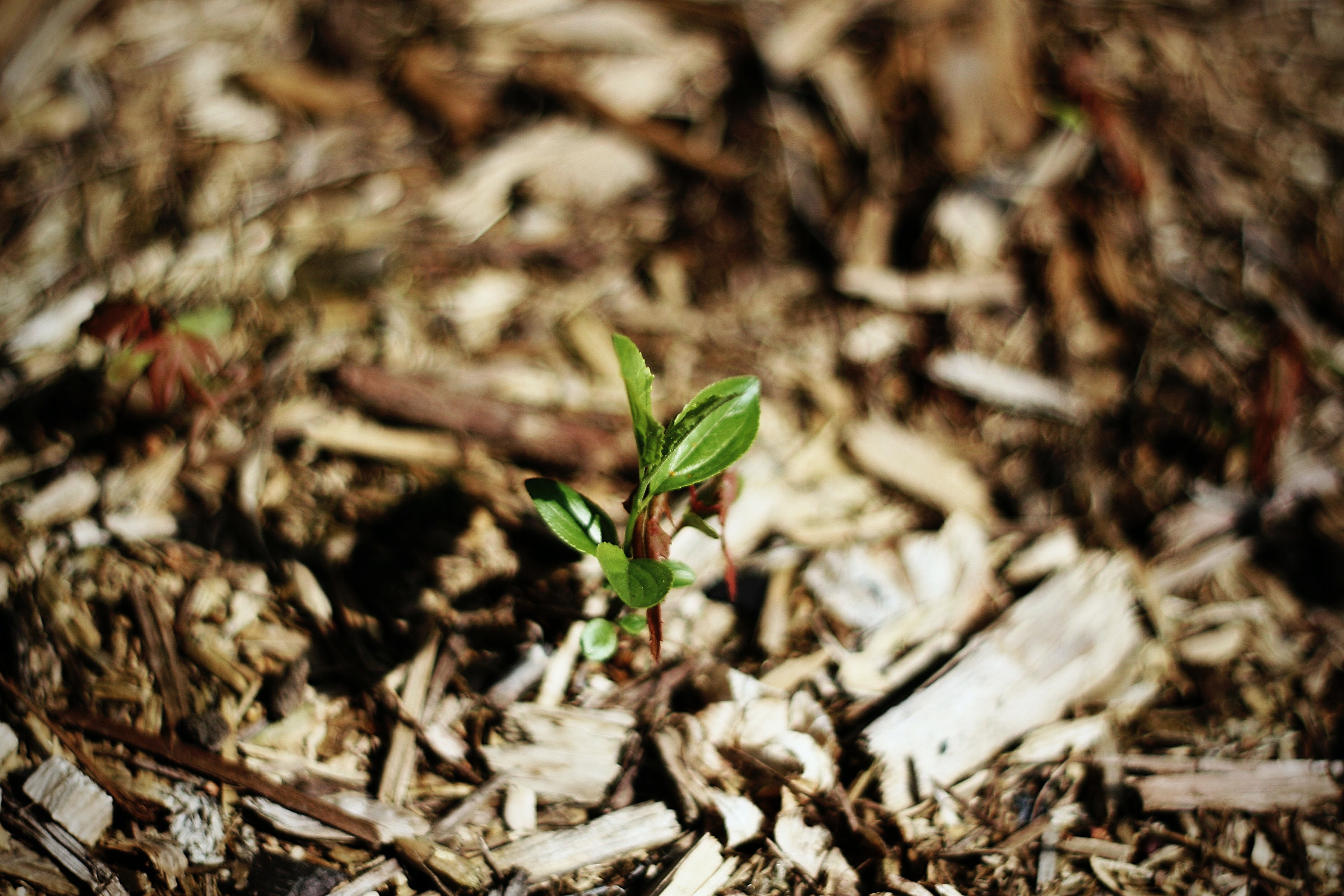
3. Add coffee grounds to mulch
Using mulch in the garden has an array of advantages. Mulching is one of the best ways to kill weeds naturally by inhibiting their growth. It can help the soil retain water, which protects the roots from drying out and can help protect plants from frost.
Mix the coffee grounds with other organic matter such as leaf mold. In this way, you'll reduce the risk of clumps which could stop the water from reaching plant roots. Make sure you don’t use a thick layer either because plants could be sensitive to the caffeine in the grounds.
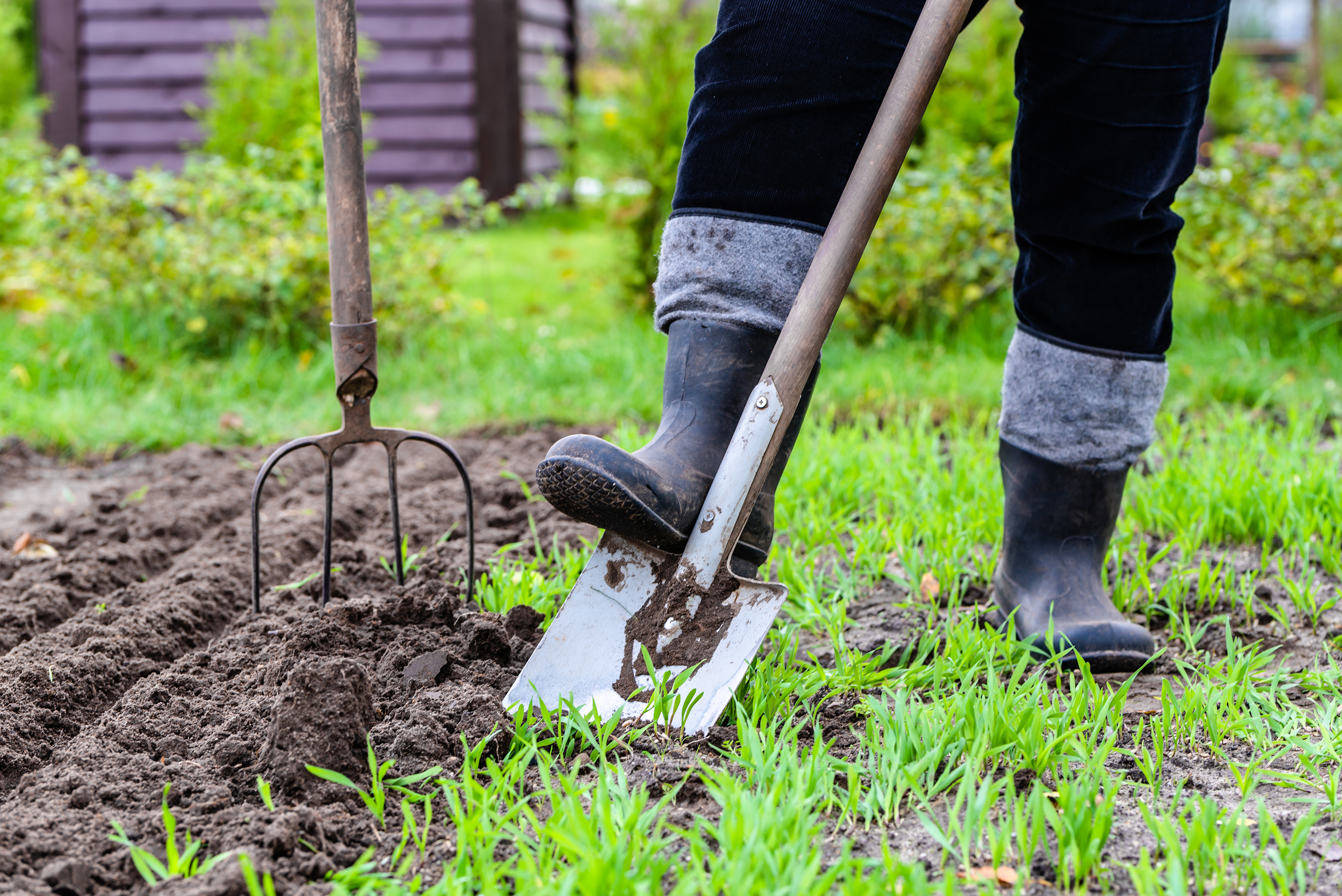
4. Feed worms with coffee grounds
Worms, or at least the sort that you’d use in a wormery, are fans of coffee grounds, it seems. If you’re are a vermicomposter – or like the idea of becoming one – coffee grounds can be part of the kitchen waste you add to your worm bin.
Vermicomposting employs the skills of particular types of worm to turn scraps from the kitchen along with other green waste into both compost rich in nutrients and liquid fertilizer.
You can add a cup of coffee grounds a week to a small worm bin. Make sure you never put in too much at one time, though, as the acidity could be a problem. Oh, and you can add the paper filter as well. Neat.
Which vegetable plants in particular like used coffee grounds and why?
'As coffee grounds are close to pH neutral, acid-loving vegetable plants will benefit the most. This is because the grounds lead to better harvest by providing extra nutrients. Cabbage, carrots, potatoes, radishes, turnips, squash, and soybeans all like used coffee grounds,’ says Spencer.
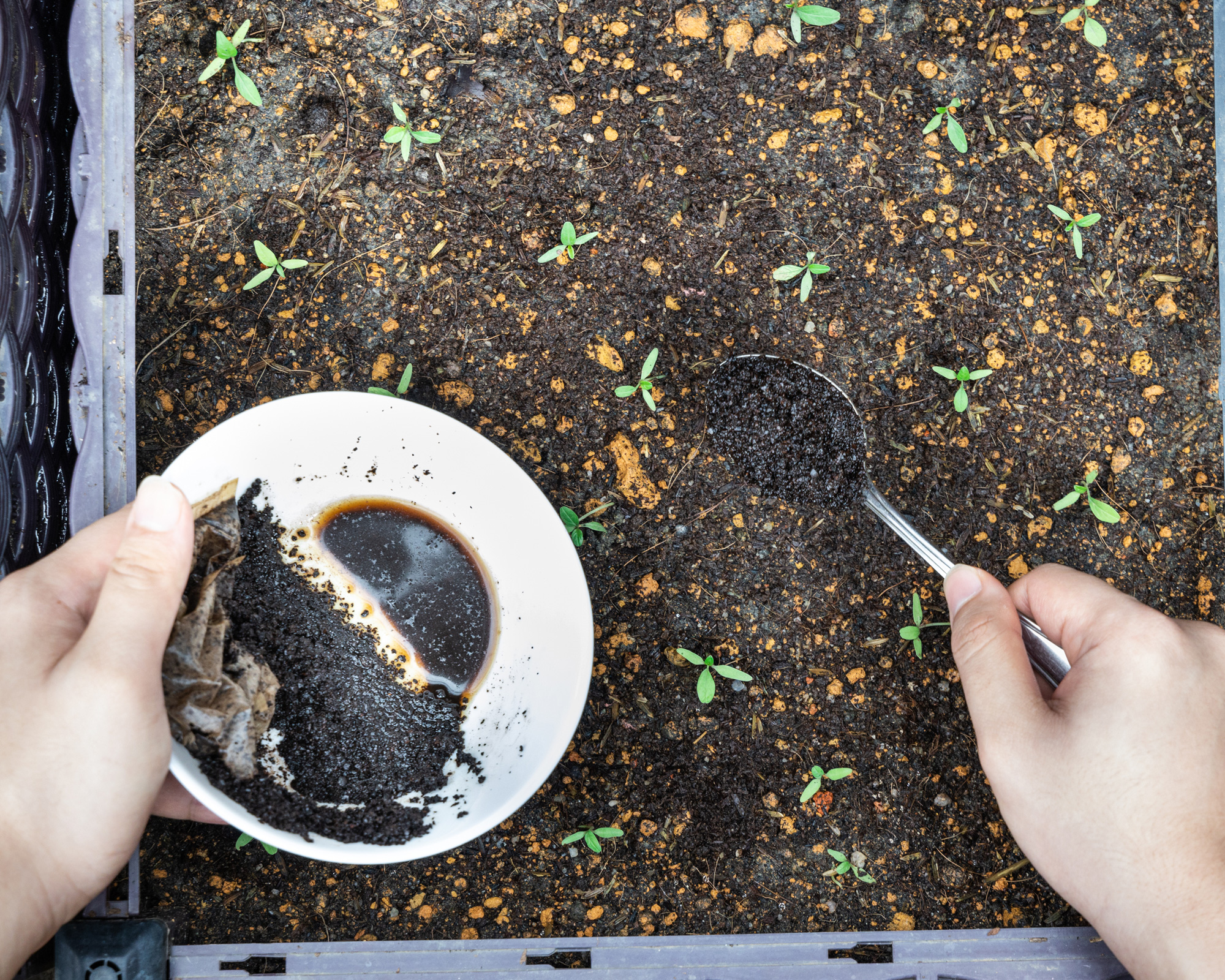
Can you put too many coffee grounds in your garden?
In a word, yes. This isn't because coffee grounds will acidify your soil (they're not nearly acidic enough to do this), but because, as Spencer explains, 'the small particles can clump together creating a water-resistant barrier, stunting plant growth.'
So, 'always use the grounds sparingly and never in large quantities. Coffee grounds will not kill grown plants, it will just take some recovery time in the event of excess application. To rectify using too much, use a rake to separate the particles into finer bits.’
Can you put coffee grounds in potted plants?
This isn't recommended. ‘As coffee grounds can easily become compact, adding them directly to the potting soil of potted plants could create a thick layer. This will trap the plant of moisture and can cause fungal overgrowth.
'Instead of direct application, only use a thin ½ inch layer before covering with a four inch layer of mulch. Coffee grounds work best as mulch when mixed with organic matter. Only do this if your plants are large, small potted plants won’t benefit from the grounds as they have less surface area to retain moisture.’
Do coffee grounds repel slugs?
This one is a myth, unfortunately. Blogger at Garden Myths Robert Pavlis tried the coffee grounds method – and, guess what, the slugs happily crawled all over the coffee grounds and still ate his plants.
What does work, according to a study by Nature.com, is freshly brewed, strong coffee that's been cooled down. Water the area that slugs frequent; the slugs will absorb the caffeine through their bodies and die. It's not a humane method of getting rid of them, but it will work.
We should all be drinking more coffee ☕️ right?

Sarah is a freelance journalist and editor writing for websites, national newspapers, and magazines. She’s spent most of her journalistic career specialising in homes – long enough to see fridges become smart, decorating fashions embrace both minimalism and maximalism, and interiors that blur the indoor/outdoor link become a must-have. She loves testing the latest home appliances, revealing the trends in furnishings and fittings for every room, and investigating the benefits, costs and practicalities of home improvement. It's no big surprise that she likes to put what she writes about into practice, and is a serial house revamper. For Realhomes.com, Sarah reviews coffee machines and vacuum cleaners, taking them through their paces at home to give us an honest, real life review and comparison of every model.